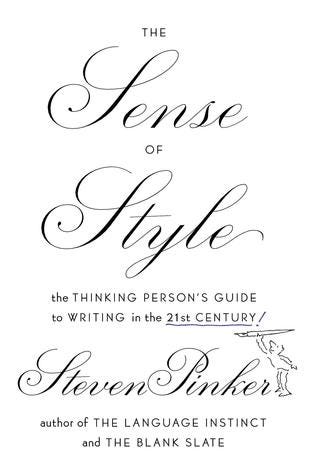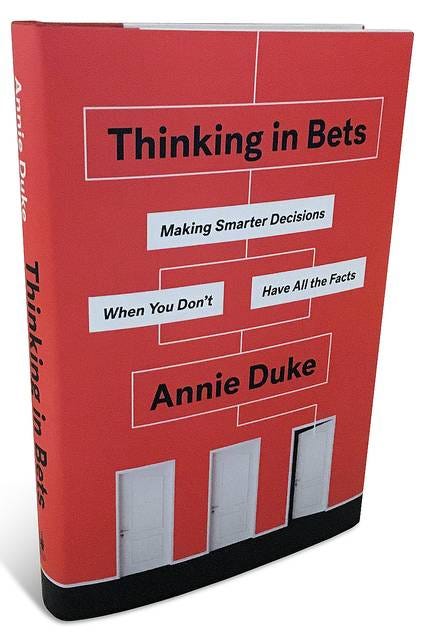I lost another book-reading challenge
The annual competition with my daughter is one I have come to cherish
“Dad, you might be winning now, but you’re going to slow down. Then, I’ll catch you.” —My oldest daughter, June 2022
My 10 favorite books from 2022
Each year, me and my oldest daughter have a book-reading contest:
$100 for reading the most books.
$100 for reading 100 or more books.
Every year since the competition began in 2016, she has beaten me like a rented mule, often by a 2:1 margin. Last year was no different. I read around 35 books in 2022; she read nearly 70. Though neither of us has sniffed 100 books in the seven years of the contest, we’ve both read a lot—our favorite addiction—and learned a lot. (I read more than 100 books per year before kids. Go figure.)
As part of the deal, we tally up our book totals (her pages-read total also dwarfs mine as most of her books are 600-plus pages) and I take her to Denton’s Recycled Books, Records and CDs, where I buy her even more books.
“Remember, Dad,” she likes to say, “you told me you’ll never say no to me when it comes to buying books.” The kids spends as much on books per year as many folks spend on bourbon or clothes. At least she does trade 75% of them back in for more books when she is done. I’m super thankful she’s a bibliophile.
Reading, especially books, is one of the best ways to learn, distill, refine, and preserve new information.
I’m also thankful for having a reading family.
I only read books I enjoy and expect to learn a great deal from. But while every book I read was worthwhile to pass on, I single 10 of the best from 2022 below—not in any particular order.
Alabama v. King: Martin Luther King Jr. and the Criminal Trial That Launched the Civil Rights Movement, by Dan Abrams, Fred Gray, David Fisher
Easily the most eye-opening book I read in 2023, Alabama v. King lays bare the genius plan to use Martin Luther King’s arrest in Montgomery to launch a legal assault against the state during the notorious Montgomery Bus Boycott—and in the process kick off what became the Civil Rights Movement. If you are into behind-the-scenes details, this is the book for you, as it contains first-person accounts and court transcripts.
The Intelligence Trap: Why Smart People Make Dumb Mistakes, by David Robson
The book take a deep dive into how and why I.Q. is a very flawed measure of overall intelligence and, in fact, makes the case that having a high I.Q. often leads to some biggest blunders in business, science, and in our personal lives.
Farsighted: How We Make the Decisions That Matter the Most , Steven Johnson
Certainly one of the books I learned the most from in 2002, Farsighted provides an in-depth look at how the best decision makers don’t go with their gut, but instead have a honed, practiced approach that enables them to more effectively make the right, best decisions time after time. Better yet, it’s an approach we can learn from and employ.
The Power of Regret: How Looking Backward Moves Us Forward, by Daniel H. Pink
Pink, one of my favorite writers, draws heavily from scientific research to reframe how we see regret. Instead of seeing it as a pall cast over our lives as we move forward, regret can and should actually be seen as a positive, one that enables us to live happier, better, richer lives.
It's the Student, Not the College: The Secrets of Succeeding at Any School―Without Going Broke or Crazy, by Kristin M. White
If you are a parent with a kid soon to enter college, get this book. The information shared herein about college acceptance, college success and success after college is mind-blowing. As the title states, it does not matter which college your child attends; it matters that the student, irrespective of school, is set up for success—academically, mentally, emotionally, and socially. (The information in the book is backed by reams of research and data.)
Walking in My Shoes: A Woman's Story of Leadership, by Laura Downey Hill
This excellent memoir is written by one of my political mentors and should be a part of anyone’s reading list in 2023. You’ll be impressed with the quality of the leadership advice, which is especially pertinent for young women, but you’ll be taken on a great journey highlighting the importance of family, civic engagement, and service to others. (I read this book twice; it’s that good.)
Maverick: A Biography of Thomas Sowell, by Jason L. Riley
If you’re an economics buff, it’s impossible not to know Sowell and his great works of importance on the topics of race, culture, and economic theory. But with this first-ever biography of Sowell, the author shares with us intimate details of what made Sowell the man that he is, someone whose works—including 30 books—make him a towering figure in the field.
Facing Reality: Two Truths About Race in America , by Charles Murray
Love him or hate him, Charles Murray is known as much for the strength of his ideas and is unflinching willingness to share them as he is for his willingness to run toward controversy. This book is no different, for in it he argues that our country’s varying rates of violent crime across racial and ethnic groups comes about because of our differing means and distributions of cognitive ability.
Decoding Greatness: How the Best in the World Reverse Engineer Success, by Ron Friedman
This book turns much of what we think leads to success—talent or practice—on its head, and in doing so takes readers on a journey of exploration whereby they learn to reverse engineer many of the processes used for creative discovery in science and business. You’ll discover how to dissect ideas and find precisely what made them work, allowing you to adapt those strategies for your own benefit.
The Diversity Delusion: How Race and Gender Pandering Corrupt the University and Undermine Our Culture, by Heather Mac Donald
Mac Donald, the Thomas W. Smith Fellow at the Manhattan Institute, makes the case that the the country is in peril, thanks to the toxic ideas being spread in the workplace, our colleges, and in every day discourse by “diversity commissars” who—using racism and sexism as ever-present bogeymen—eschew meritocratic standards to force students, teachers, and employees to see themselves as victims.
What I’m reading…
The behavioral economics nerd in me cannot get enough of Annie Duke’s work. I recently finished her latest book Quit: The Power of Knowing When to Walk Away. Released in 2018, Thinking in Bets: Making Smarter Decisions When You Don’t Have All The Facts is shaping up to be equally as good.
If you struggle to make tough decisions when the outcome isn't clearly weighted to one side, this book will do wonders for your decision making. Duke helps you remove the need for clarity, replacing it with a focus on which choice has a higher chance of success. That is, instead of being paralyzed at not having enough information to make the best decision, you focus on the known and unknown areas of the process. She provides tips—backed by research—on how to remove biases and emotion when making decisions.







